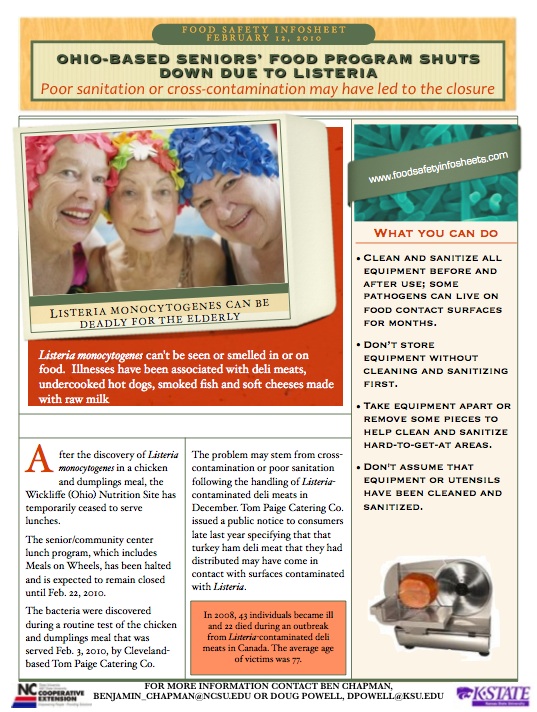Listeria is bad news for some folks. The elderly and pregnant women are hit much harder than the rest of the population (with mortality rate for listerosis infections in the elderly somewhere around 20-30%).
I gave a talk earlier this year to a bunch of food service operators and gave a few examples on why Listeria is a problem for certain groups of people, focusing on the Maple Leaf outbreak (In 2008, 43 individuals became ill and 22 died during the outbreak linked to Listeria-contaminated deli meat; the average age of victims was 77).
One of the participants, who had his food handlers’ food safety certification, came up to me afterwards and wanted to know more about Listeria and the elderly. He told me that after running institutional foodservice operations for 20 years he had never really connected how big of an issue Listeria is for him and that he had some responsibility for keeping it out of kitchen. He was really freaked out because his residents had recently demanded he provide them with a sandwich bar. So he did.
Research with foodservice personnel in long-term care/assisted living facilities shows that operators can demonstrate general food safety knowledge and generally good attitude towards food safety. Operators’ concern tended to focus on personal hygiene-related issues and little on Listeria-specific risks such as the avoidance of RTE foods susceptible for contamination and risk reduction practices. Cross-contamination and sanitation issues, specifically with food contact surfaces (including cutting boards and counters) have been shown to be problematic for operators in long term care or assisted living facilities.
This week’s food safety infosheet focuses on Listeria-related risks in the food service kitchen and uses an example of a senior’s program facility in Ohio being shut down. The closure was due to fallout from a Listeria monocytogenes positive sample from a meal served there.
You can download the food safety infosheet here.
